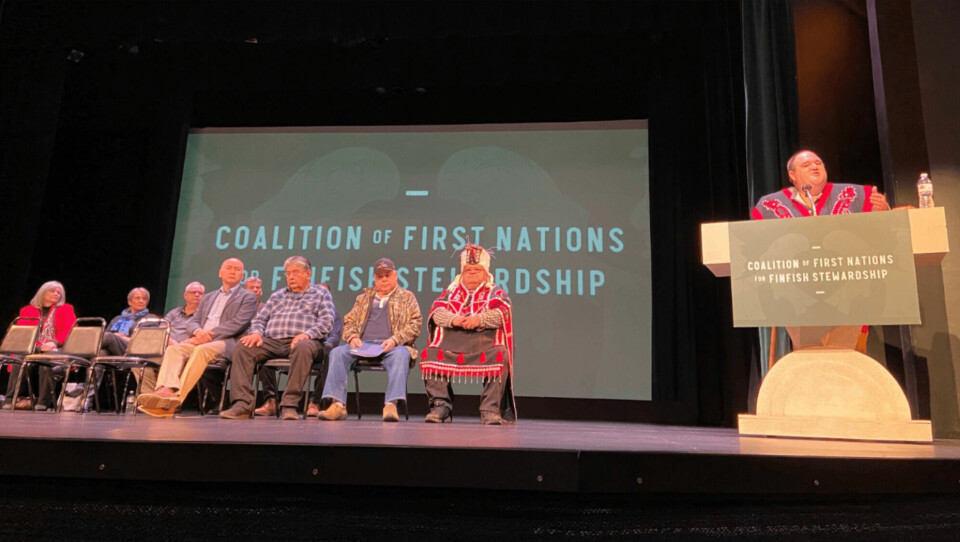
Fish farming First Nations call for more time for transition talks
First Nations that support and benefit from salmon farming in British Columbia have said that they aren’t being given enough time to have their say about how the Canadian government’s plan to transition the industry in BC from open-net pens will be shaped.
The Coalition of First Nations for Finfish Stewardship (FNFFS) is also objecting to a decision to put the First Nations Fisheries Council (FNFC) – which it says opposes salmon farming - in charge of facilitating First Nations engagement sessions and workshops in the consultation process.
Canadian government department Fisheries and Oceans Canada (DFO) published a discussion framework which outlines a proposed vision for open-net pen transition on Friday. The four-stage engagement process with First Nations and other stakeholders such as salmon farmers and conservation organisations is due to be completed by June next year.
Rights and Title
The FNFFS said in a statement today that its member Nations have been asserting Rights and Title to both the federal and provincial governments regarding salmon farming in their waters since March 2022 and were encouraged to see how many of their concerns, input, language, and socio-economic data had been woven into the fabric of the DFO’s framework.
But the FNFFS wants the timescale of the consultation lengthened by at least six months and doesn’t think its members will get a fair hearing if they rely on the FNFC to arrange consultations.
“Considering the weight of the potential impact this transition plan will have economically and socially on our communities, and the busy fishing season in the coming months for our people, our Coalition Nations call on DFO to extend the consultation process for the Open Net-Pen Transition Plan into 2024 to ensure proper, respectful engagement for each Nation occurs,” stated theFNFFS.
“We also expected an objective consultation process with our Nations; however, having learned that the First Nations Fisheries Council (FNFC) is facilitating engagement sessions for Tier 1 and Tier 2 First Nations on this file, we cannot trust that an impartial process will occur, as the FNFC’s stance against salmon farming is well known. As such, our Coalition will continue its own transition communication, planning, and engagement with member Nations, the sector, and both the provincial and federal governments to ensure a fair transition process takes place.”
Invitation to minister
The FNFFS thanked fisheries minister Joyce Murray, her department (DFO), and the British Columbia provincial government “for continuing to sit down and listen to our Nations as we walk through this complicated process together”.
The group continued: “We appreciate the work and thoughtfulness that have gone into this Framework and look forward to continuing these tripartite conversations with all governments at the table.
“We would also like to invite Minister Murray to meet with our Coalition Nations in coming weeks to discuss our processes further, as well as to seek some clarification on your department’s methods on this file going forward.”
Read the statement in full here.






















































